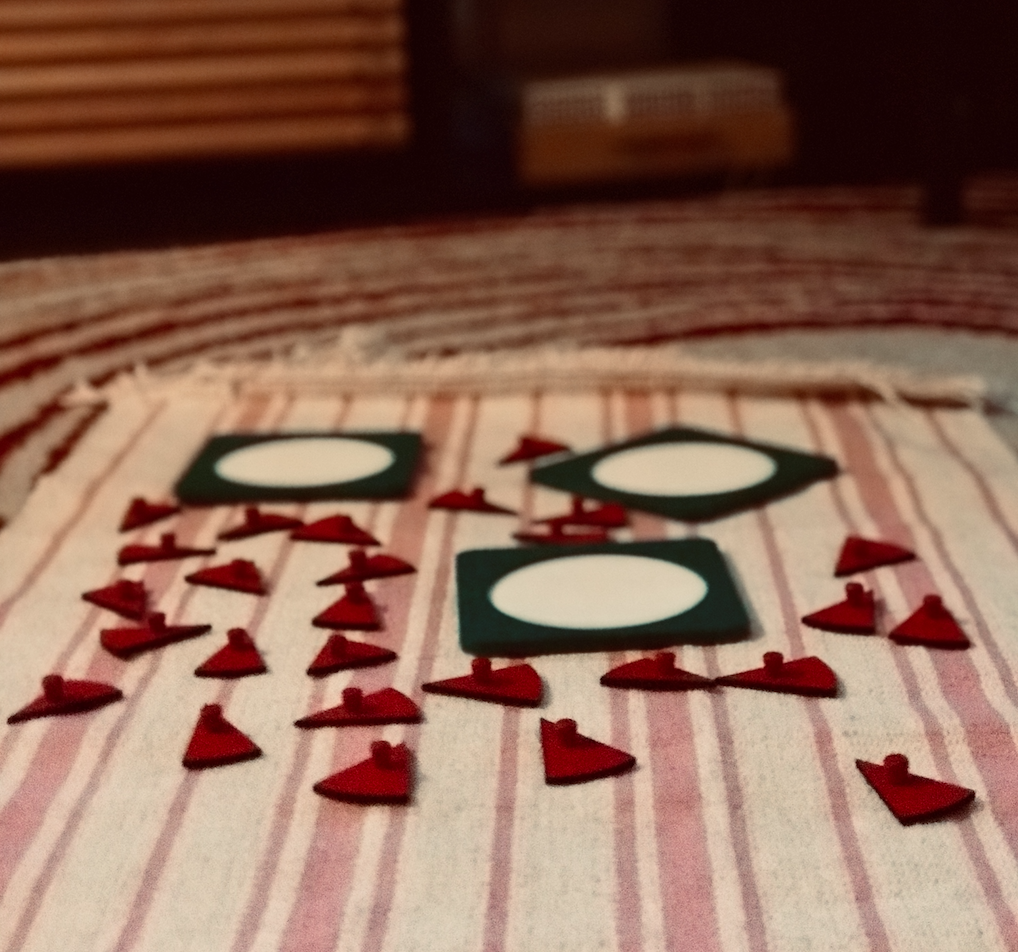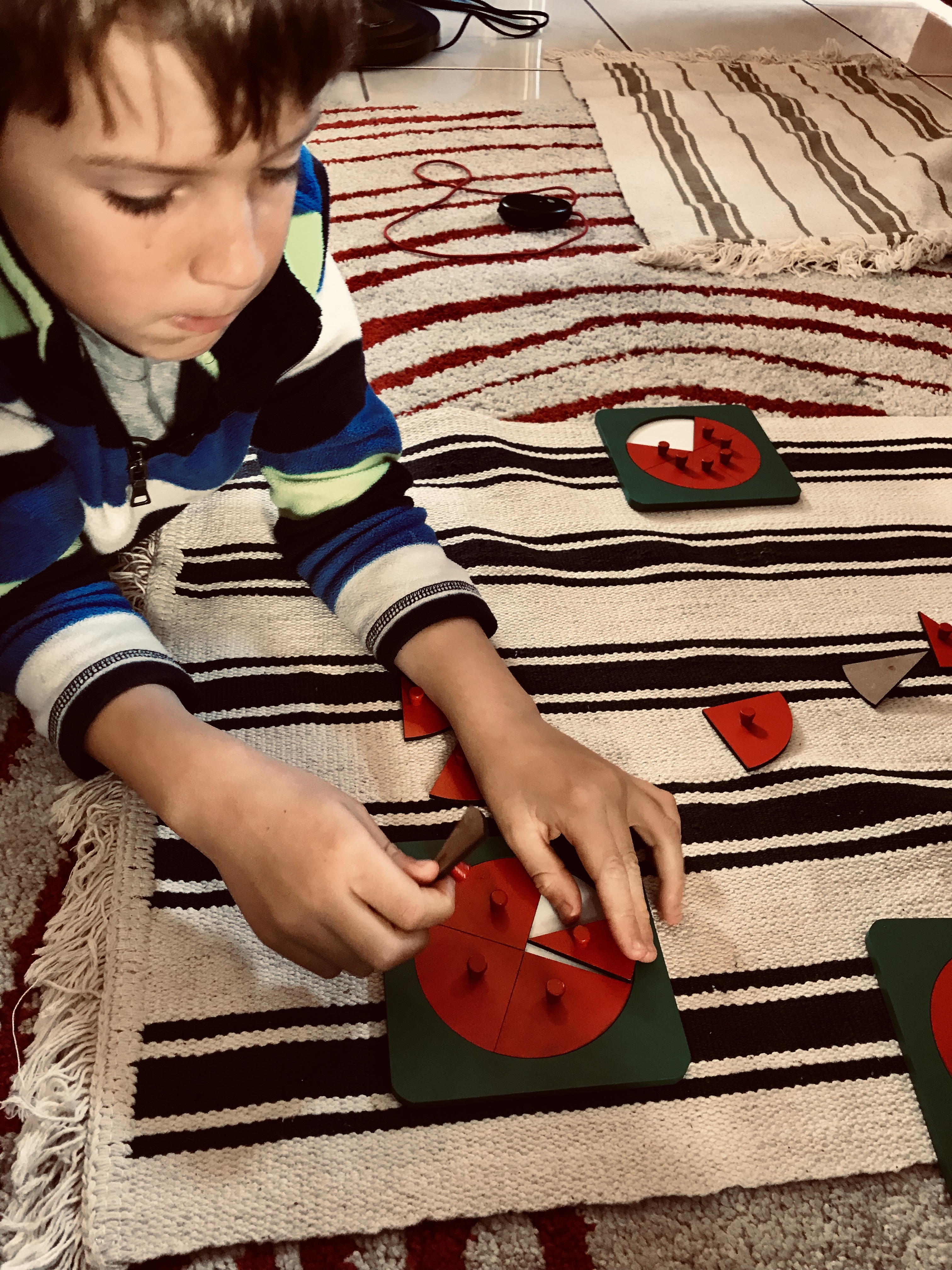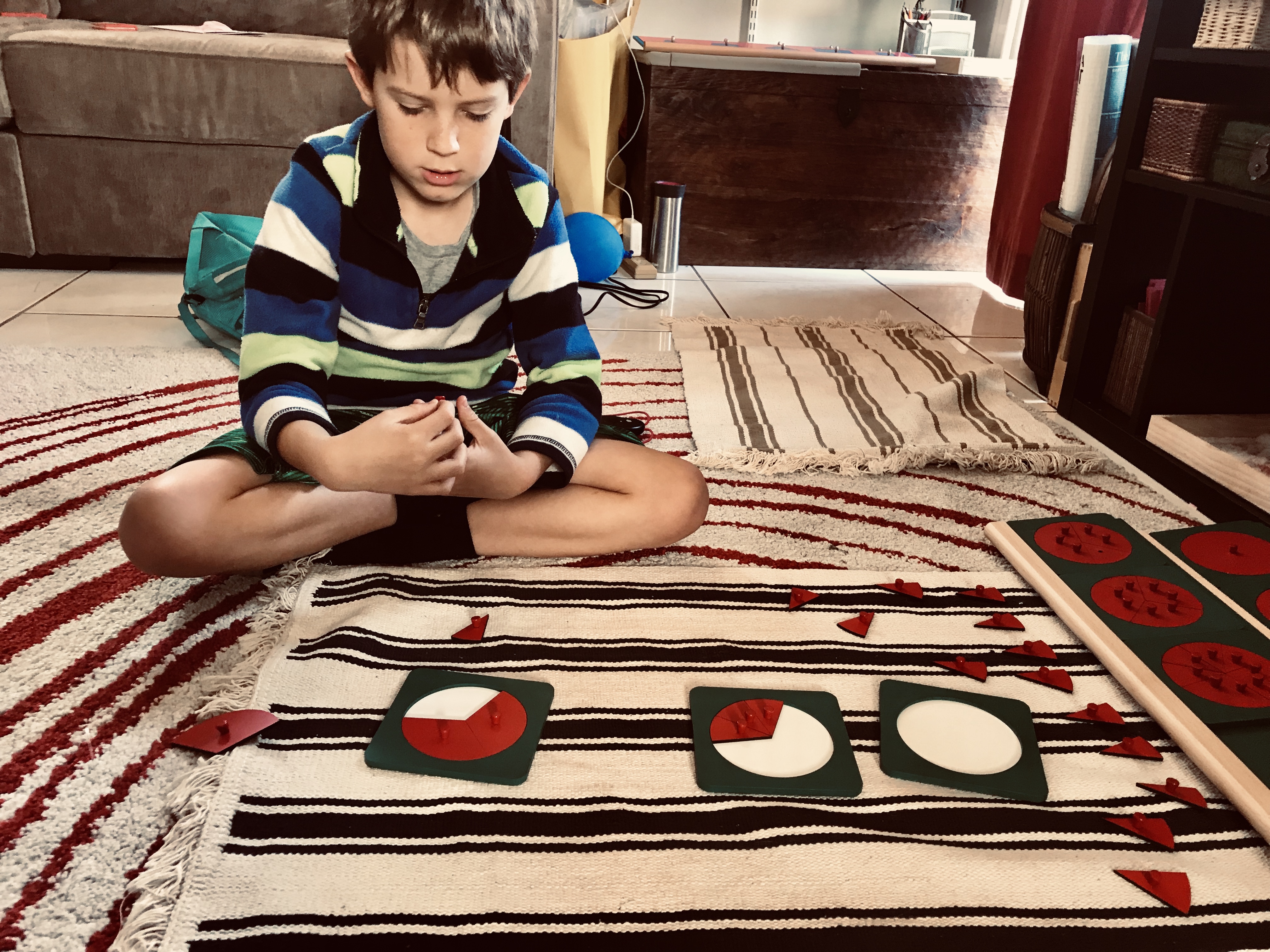When Help Is A Hindrance
Few clean-ups seem as overwhelming as that of the Montessori fractions. The halves through sevenths are easy enough for most children, but the 27 hard-to-distinguish red wedges that make up the eighths, ninths, and tenths can leave even Elementary children feeling stuck and discouraged.

I've inherited Montessori fractions in several of my classrooms, and I've often found that a well-meaning predecessor had written the corresponding value on the underside of each fraction piece. At first glance, this might seem helpful. It sure makes cleaning up those pesky fractions a lot quicker!
So, why did Dr. Montessori design the fraction pieces without labels? Did she harbor some evil desire to torment children and their over-worked adult guides? Or did she observe that leaving the fractions unlabeled led to the development of problem-solving skills through creative use of the child's knowledge?
The answer becomes clear when we consider Dr. Montessori's advice: "Every unnecessary help is a hindrance to the child's development."
Is writing the values on the underside of the fraction pieces really necessary? Or, by doing so, are we preventing the child from developing essential skills? If we don't want to be a hindrance to their development, but we need them to eventually clean up, what can we do to guide a child who's feeling discouraged by this overwhelming task?

When a child is faced with sorting a pile of unlabeled slim red wedges, it's enough to help him recall that two eighths are equivalent to - or take up the same space as - one fourth. Depending on the child's prior knowledge, you can ask, "What do you know about equivalences?" or "What do you know about the relationship between fourths and eighths?"
If the child is younger and doesn't know this information, simply guide him in a sensorial exploration. Invite the child to bring out the fourths inset, ask him to remove one fourth, and show how the space within the inset serves as an objective control of error. When fractions other than two eighths are placed within the space vacated by the fourth, you will see a gap. Only two eighths will fit perfectly within the space of the missing fourth. The monumental clean-up now becomes a fun puzzle that satisfies the child's love of precision and bolsters his self-confidence. You can back away, returning only if he needs guidance to find the relationship between fifths and tenths, or thirds and ninths (children familiar with equivalences will likely make the connections on their own)
.
Take a moment to observe the child's concentration, enjoy his smile of accomplishment, and know that you helped him move one step closer towards reaching his full potential as a creative problem-solver.
Categories
- 3-6 (8)
- 6-9 (26)
- 9-12 (8)
- Positive Discipline (2)
- Conscious Parenting (12)
- Montessori Curriculum (9)
- Preparation of the Adult (14)
- Preparation of the Environment (11)
- Montessori Principles (11)
- Montessori Homeschooling (20)
- Language Arts (3)
- Math (3)
- Geography (2)
- Biology (1)
- History (2)
- Practical Life (1)
- Montessori Stories (4)

2 comments
Leave a comment